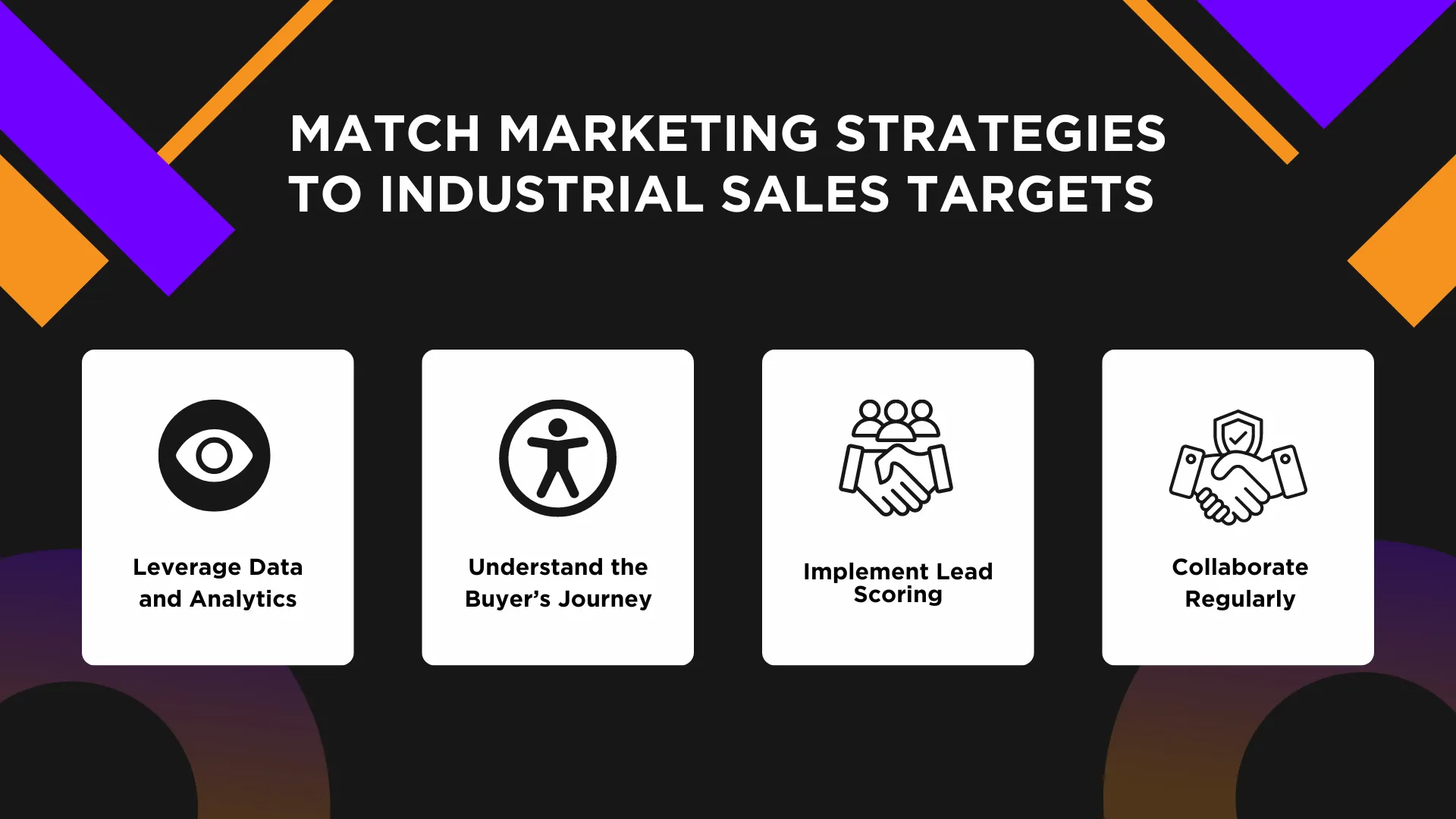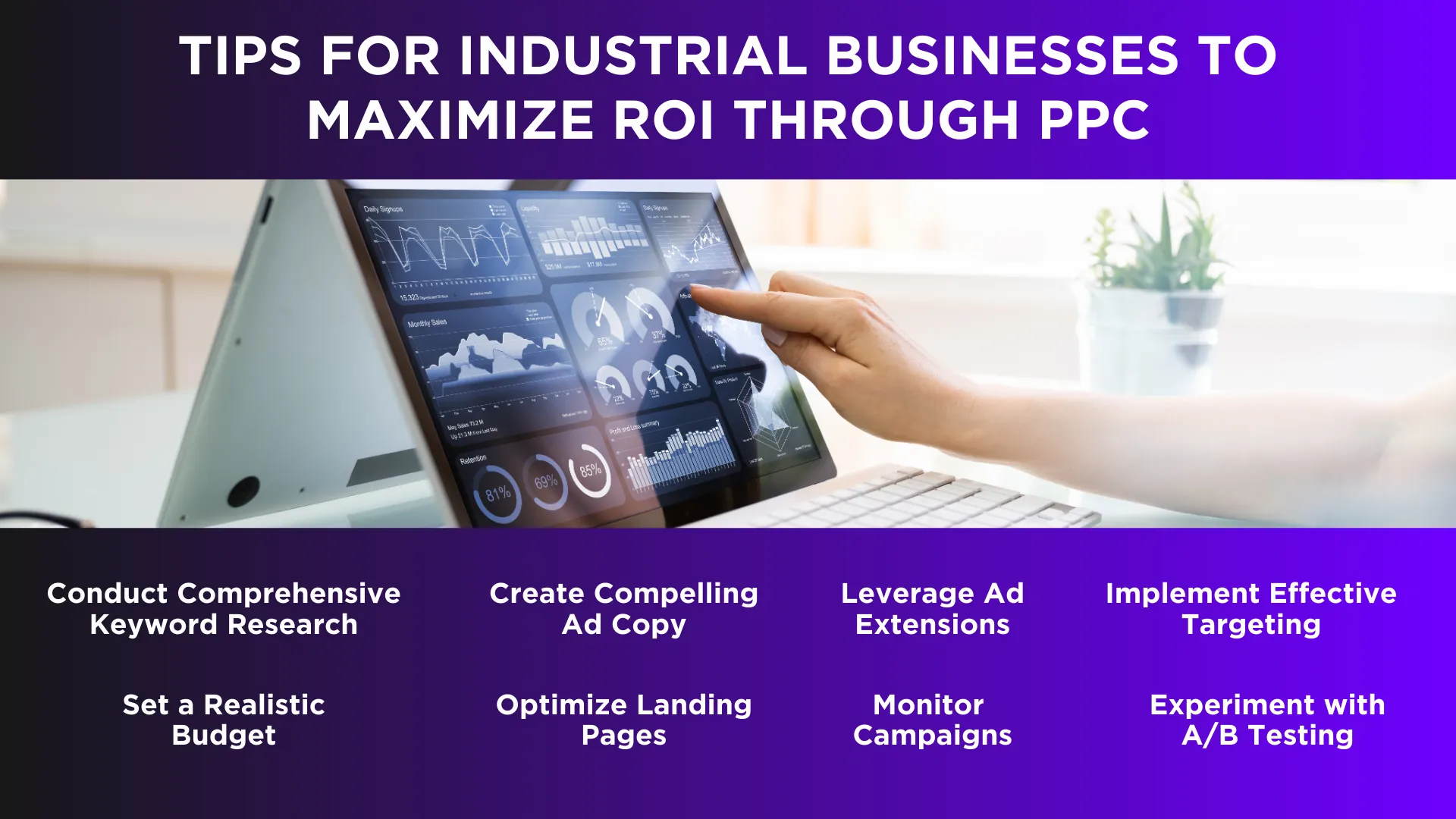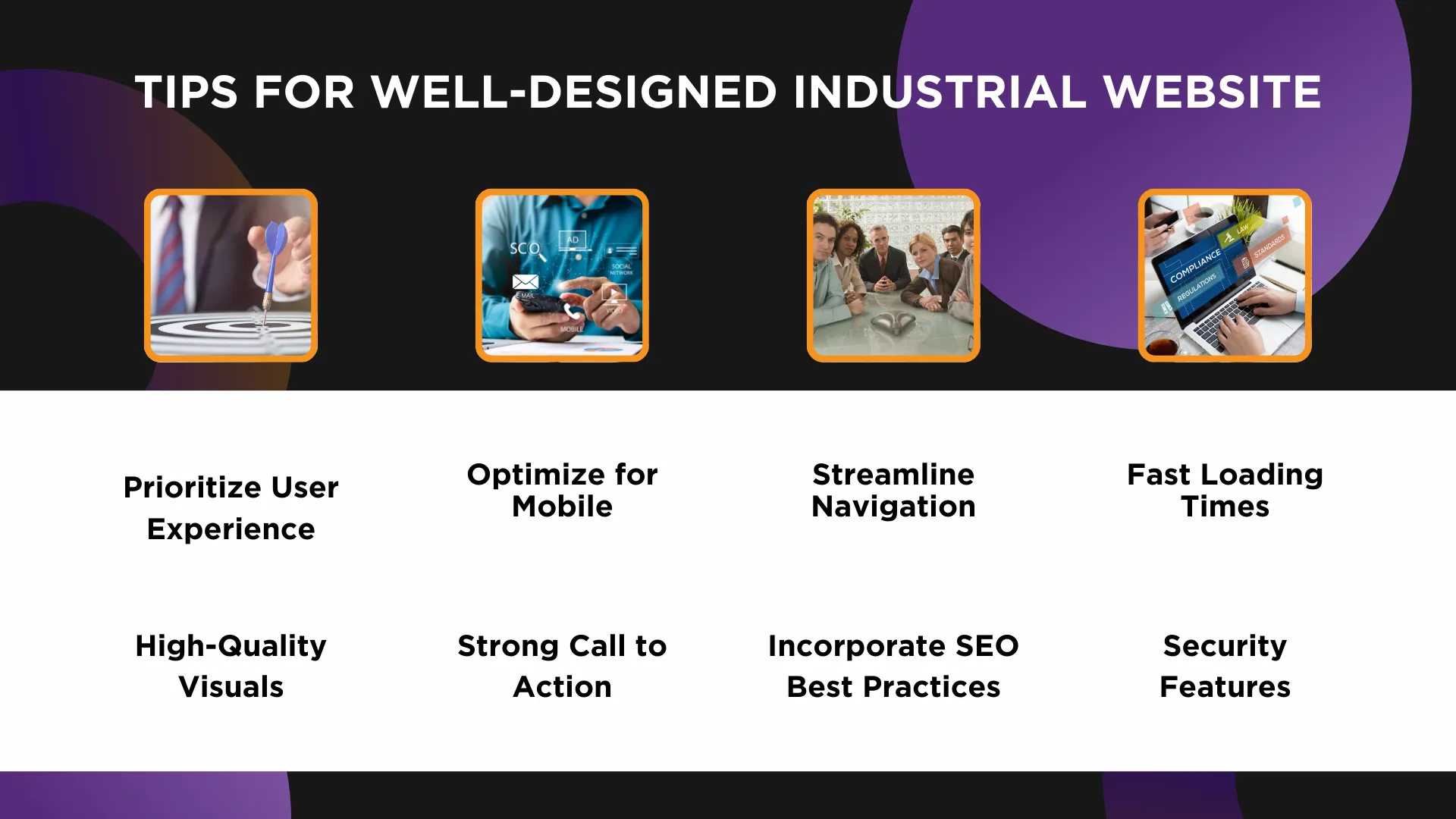Top Industrial Marketing Strategies for Driving Growth and Engagement
Industrial marketing strategies are essential for B2B companies in today’s competitive environment. Industrial marketing sells to enterprises, unlike consumer marketing, which targets consumers. This particular sector offers huge difficulties and opportunities. Industrial marketing can set your organization apart from the competition due to lengthier sales cycles, many decision-makers, and the need to create enduring relationships.
Industrial Marketing Explained: Strategies for Success
Industrial or B2B marketing promotes products and services between businesses. It requires more sophisticated decisions and higher-value transactions than consumer marketing.
Differences from consumer marketing:
- Industrial marketing has lengthier sales cycles than consumer marketing, where purchases can be made rapidly. The products and services are complex and expensive.
- Consumer marketing usually involves one or two decision-makers. In contrast, industrial purchases frequently require permission from procurement, management, and technical specialists.
-
Building and sustaining good business ties is crucial in industrial marketing.
Understanding the Challenges in Industrial Marketing
Industrial marketing faces significant challenges compared to consumer marketing.
Industrial products and services are expensive and complex, requiring careful thought and several approvals. Marketers must meet the numerous issues and interests of stakeholders, from technical specialists to financial officers, and harmonize their perspectives to establish consensus.
Strategy for industrial marketing requires detailed, technically precise information that addresses target firms’ goals and pain areas. Companies make purchase selections based on long-term connections and performance. Providing reliability and value in every connection is crucial yet difficult.
In competitive markets, companies must demonstrate their knowledge, quality, and dedication to long-term business to business relationships.
How to Align Marketing Strategies with Industrial Sales Goals?
Marketing tactics must match industrial sales team goals for coherent, efficient, and productive business growth.

Common tips for this alignment:
- Set measurable marketing and sales goals that support corporate goals.
- Collaboration between marketing and sales should be regular. Collaboration through meetings and platforms can help align strategies.
- Develop a thorough understanding of the industrial buyer’s way.
- Ensure consistent and cohesive messaging in marketing materials and sales pitches. This reinforces the brand’s value proposition across all customer touchpoints.
- Leverage data and analytics to obtain insights into customer behavior and campaign performance.
- Create a mechanism to prioritize qualified leads. Marketers create and qualify leads that sales teams follow up on.
- To improve relevance and engagement, create thorough customer personas to match marketing and sales strategies to the requirements and preferences of the target audience.
- Align incentives for marketing and sales teams to promote teamwork and success. Joint goals like revenue or customer acquisition could lead to incentives.
Following these steps to develop an industrial marketing strategy helps synergistically improve marketing and sales performance, increasing revenue and market share.
Strategy for Industrial Marketing: Core Elements
An effective industrial web marketing plan requires various B2B-specific elements. Digital channels are used to increase visibility, create leads, and build enduring partnerships:
- Website optimization;
- Content marketing;
- Email Marketing;
- Engage Social Media;
- PPC Ads;
- Customer Relationship Management;
- Analytics and Reporting.
Businesses can develop comprehensive industrial marketing strategies that attract potential clients and build long-term business relationships to sustain development and success by integrating these fundamental features.
Optimizing Industrial Website Design for a Strong Online Presence
Industrial companies need well-designed websites in the digital age. Your website is generally a potential customers’ initial encounter with your firm. Thus, it must make an initial impression. Effective industrial website design extends beyond aesthetics to provide a smooth user experience, easy navigation, and fast loading times. Industrial goods are technical and often sophisticated, so these features make it easy for visitors to learn about your products and services.
Search engines require a well-optimized website. Targeted SEO methods increase search engine visibility, making it easier for potential clients to find you. Responsive design makes the site work well on all devices, from computers to smartphones.
Attractive industrial website design is an essential part of industrial product marketing strategy. It lends credibility to your brand by conveying trustworthiness, knowledge, and professionalism.
Industrial Search Engine Optimization: Driving Traffic and Leads to Your Website
To rank higher on Google, your website needs SEO. Optimize your website’s content, structure, and technological components to rank higher for relevant search terms. This boosts organic traffic and quality leads.
Essential steps for effective SEO optimization used by industrial marketers:
- Complete Keyword Research: Identify search terms potential customers used to find your products or services. Google Keyword Planner, SEMrush, and Ahrefs help you uncover high-volume, low-competition keywords that drive visitors.
- For On-Page Optimization, naturally incorporate keywords into page content, such as titles, headers, and meta descriptions. Each page should have a distinct title tag and meta description that appropriately describes its content.
- Create Quality Content: Create informed, entertaining, and useful material for your target audience. Blog pieces, whitepapers, case studies, and how-to guides help establish your organization as a thought leader.
- Technical SEO Improvement: Optimize your website’s speed, mobile friendliness, and HTTPS protocols. Use Google PageSpeed Insights to find and fix site performance issues. Create clear, descriptive, keyword-rich URLs for each website page. Avoid complicated URL symbols and numbers that confuse search engines and people.
- Multimedia and Image Optimization: Optimize all pictures and multimedia for fast loading. Give your photographs descriptive file names and alt text to help search engines interpret them.
- Building High-Quality Backlinks: Build a strong backlink profile by gaining links from industry-leading websites. This can be done through guest blogging, partnerships, or shareable material that naturally attracts links.
-
Regular Performance Monitoring: Track and analyze SEO with Google Analytics and Search Console. Analyze organic traffic, bounce rate, and conversion rates to determine what in your works and what needs improvement.
Boosting Industrial Sales: The Power of Pay-Per-Click Advertising
Paid advertising lets a company bid on keywords and show adverts to searchers. Google Ads helps businesses target demographics and locations, and even retarget site users. PPC offers instant visibility and ROI.

These are some crucial guidelines for industrial product marketing strategy to optimize return on investment:
- Conduct thorough keyword research to identify the most effective keywords for your industrial products and services. Find keywords with high search traffic and low competition to target the proper audience with ads.
- To create compelling ad language, underline the distinct value propositions of your industrial offerings. Make powerful calls-to-action, clear benefits, and specific details that meet customer needs.
- Add more information and boost ad visibility with ad extensions. Ad extensions including site links, callouts, and structured snippets improve click-through rates.
- Make sure your landing pages are optimized for conversion.
-
Try A/B Testing: Compare ad copy, landing pages, and targeting tactics. This can help you determine what works for your audience and enhance your marketing.
Email Marketing for Industrial Firms: Building Strong Customer Relationships
Email marketing is a crucial part of industrial marketing strategies for companies because it builds long-term client and prospect relationships. Emails are direct and customizable, unlike other marketing platforms.
Email marketing is affordable and measurable. Automation tools allow firms to segment their audiences by industry, employment function, and purchasing history to deliver appropriate content. Analytics can also track email marketing performance, helping organizations improve their methods.
Email marketing is cost-effective and measurable. Marketing automation tools allow firms to segment their audiences by industry, employment function, and purchasing history to deliver appropriate content.
Common industrial B2B marketing strategies that drive results through emails:
-
An integration of account-based marketing
- Target high-value accounts with email and ABM. Each account has distinct issues and needs, so customize your emails.
- Lead Nurturing
- Automate email sequences to nurture leads along the sales funnel. Use articles, eBooks, and webinars to gradually move leads toward a purchase.
- Offers and Promotions Exclusive
- Offer unique promotions to email subscribers. Promote limited-time discounts, loyalty rewards, and early product access to boost conversions.
- Educational Content Series
- Develop and share informative emails on industry-specific themes. Establish your brand as a thought leader and gain audience trust.
Driving Engagement and Leads: Content Marketing for Industrial Firms
Content Marketing involves developing and delivering valuable, relevant, and consistent information to attract and maintain a certain audience. Industrial organizations can address their audience’s pain areas and decision-making issues via technical articles, case studies and videos. This builds trust, nurtures leads, and strengthens customer connections, boosting business growth and market position.
Examples of long-term industrial marketing strategies:
-
Continuing Blog Series: Continue a blog series about your industry. Consistently posting useful information keeps readers coming back.
- Educational Webinars: Hold webinars on industry issues and solutions. Recording these events can provide useful marketing content.
- Calculator and Interactive Tools: Make your website a resource hub by adding cost estimators and efficiency calculators.
- Long-form video: Create and share documentary-style or in-depth tutorials to simplify hard topics.
- Customer Success Programs: Create customer success initiatives with detailed case studies showing how your products or services have improved your consumers’ lives. Trust is built by showing real-world applications.
- Industrial Research: Original research reports with industry insights should be published. Your brand should lead in providing crucial information to your consumers.
Transforming Industrial Marketing with Targeted Social Media Tactics
Industrial companies can reach their target demographic on social media. It lets organizations display their skills, communicate with prospects, and raise brand awareness. Social media can also generate leads through targeted advertising and community building.
To maximize the strategy for industrial marketing, target your audience’s preferred platforms and adapt your content. To engage followers, offer instructive, industry news, and promotional content. Use LinkedIn paid advertising to reach a wider, more targeted audience.
Social media has transformed industrial marketing, providing unprecedented interaction, brand promotion, and lead creation. Using social media effectively requires a well-defined plan.
Strategic planning for industrial marketing success with social media:
- Set Social Media Goals
- Align your social media goals with your business goals. Having measurable goals for brand visibility, website traffic, or leads keeps the plan focused.
- Determine Your Audience
- Be sure to examine your audience’s demographics, habits, and preferences. LinkedIn is ideal for B2B marketing since it reaches decision-makers and industry professionals.
- Create Content Calendar
- A detailed editorial calendar helps you plan content. This assures stability and a balanced mix of instructional materials, industry news, case studies, and promotional offers.
- Interact with Audience
- Interaction is crucial on social media. Answer comments, texts, and mentions quickly. Engagement creates relationships and boosts content visibility through algorithms that favor active profiles.
- Utilize Paid Advertising
- Paid advertising expands and targets your audience. LinkedIn and Facebook allow you to target ideal customers by job title, industry, and interest.
- Performance Monitoring and Analysis
- Monitor your social media metrics using analytics tools to evaluate your posts and campaigns. Engagement, click-through, and conversion rates can inform future industrial marketing efforts.
- Adjust and Change
- The digital marketing landscape is always changing. Follow each platform’s new features and algorithms. Be adaptable to keep your plan relevant and effective.
Driving Sustainable Growth with Industrial Marketing
Industrial marketing is evolving, requiring thorough web marketing tactics to stay competitive. Strategies like content marketing, social media interaction, and targeted paid advertising have transformed audience engagement for industrial enterprises. Companies can establish themselves as resource hubs and industry leaders by creating valuable content, while social media fosters community building and tailored advertising.
Monitoring and adjusting strategies with analytics ensures marketing effectiveness and adaptability to trends. These digital marketing methods help industrial companies strengthen their brand, build meaningful client relationships, and succeed in a competitive market. To remain competitive, businesses must continuously refine their strategies. Webugol specializes in helping industrial companies leverage these tactics to reach and engage their target audience, developing a strong market presence for lasting success.




